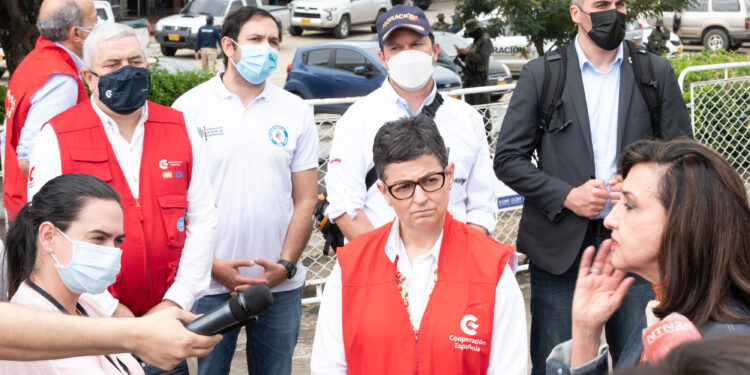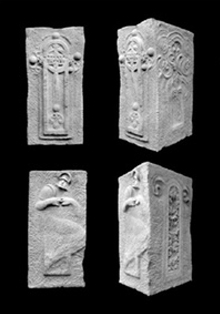The Diplomat
The visit that the Minister of Foreign Affairs, Arancha González Laya, made on Saturday to Cúcuta, to express her support to the Colombian authorities in the reception of 1.7 million Venezuelan refugees has provoked a new clash within the coalition Government presided by Pedro Sánchez.
Yesterday, one of the leaders of Izquierda Unida of Izquierda Unida and spokesman of Unidas Podemos in the Foreign Affairs Committee of the Congress, Enrique Santiago, aligned himself with the criticisms made hours earlier to the minister by the Venezuelan president, Nicolás Maduro, and described as “provocation” or serious diplomatic mistake” the displacement of the minister to the border between Colombia and Venezuela to check the situation of the displaced Venezuelans.
In his Twitter account, Enrique Santiago, who is also secretary general of the Communist Party of Spain (PCE), stated, “Going with the most ultra-right-wing government of the region to the Venezuelan border is a provocation or a serious diplomatic error. Thus, Spain cancels itself out to help a solution”.
Santiago also commented that “if the European Union suffocates Venezuela with illegal sanctions, it knows that the answer will be to expel its ambassador”, in reference to the decision adopted last Wednesday by the Bolivarian regime to declare the European delegate in Caracas, Isabel Brilhante, “persona non grata”, who was given 72 hours to leave the country.
During his visit to Cúcuta, González Laya asked Maduro to revoke this decision because it does not help the dialogue. The Venezuelan president’s response was not long in coming and he assured: “We are going to thoroughly review the entire relationship with Spain, at all levels, enough of aggressions”.
Maduro, who on other occasions has already threatened to review relations with Spain, without ever specifying what this review will consist of, added that he will respond “in a forceful manner” to “any aggression that comes, be it by word, be it by action, be it diplomatic, be it political”.
Furthermore, he asked González Laya to leave Latin America “What is the Chancellor of Spain doing at the border of Colombia with Venezuela instead of going to the Mediterranean to look for refugees and people fleeing Africa? Why is the Chancellor of Spain coming to meddle in Venezuela’s affairs? Why is she going straight to Cúcuta to speak against Venezuela?” she asked.
The minister later replied to Maduro’s words, trying not to raise the tension, but defending her right to visit the border between Colombia and Venezuela, where Spain has initiatives underway to help migrants, and pointing out: “All I ask is the same respect I offer, no more and no less”.
Following the expulsion of the EU ambassador, the Venezuelan Foreign Minister, Jorge Arreaza, delivered a note of protest against the latest EU sanctions to several European ambassadors in Caracas, as well as to the Spanish Chargé d’Affaires ad hoc, Juan Fernández-Trigo.
The Spanish Government, however, has so far not adopted any bilateral diplomatic measures, although it criticized the expulsion order of the European ambassador and also seconded the decision of the EU High Representative for Foreign Policy. Josep Borrell, to declare the Venezuelan representative to the European Union, Claudia Salerno, “persona non grata”.






